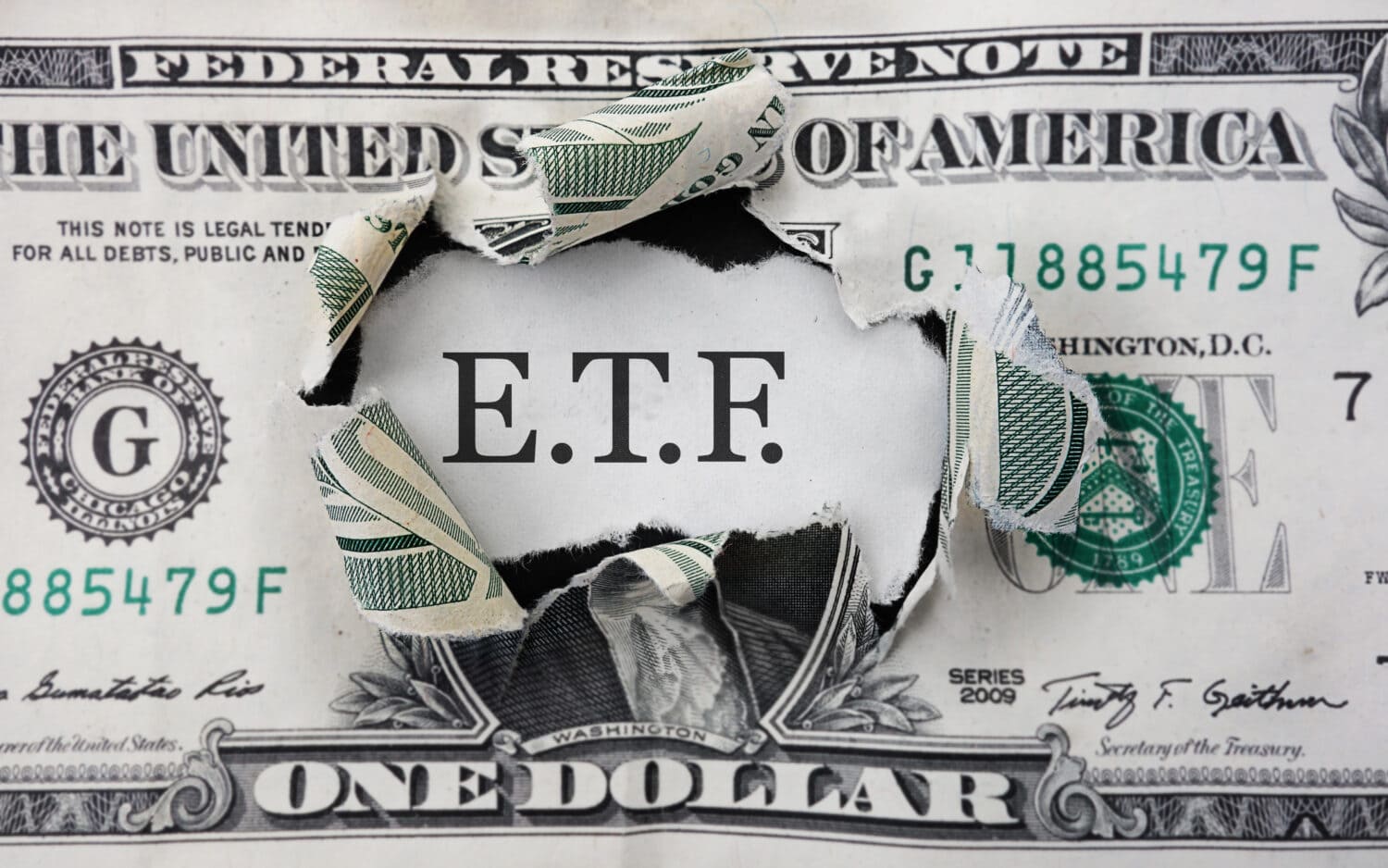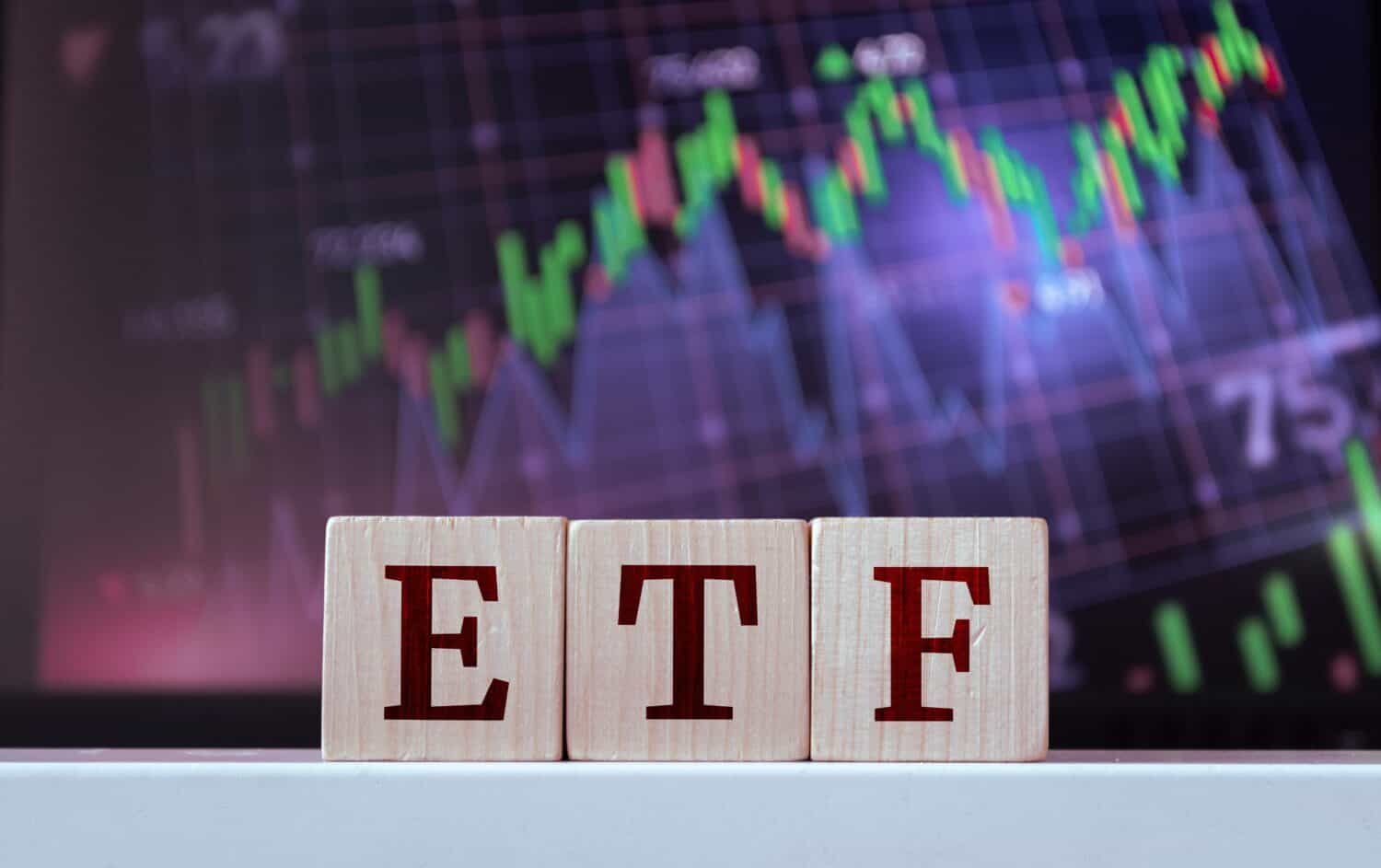

ETFs are powerful investment tools that provide diversification and exposure to specific market segments. Technology-focused ETFs like those tracking the Nasdaq-100 Index have gained significant popularity recently.
But within this space, a choice emerges: traditional, passively managed funds like QQQ or leveraged options like TQQQ that promise magnified returns.
While TQQQ offers the allure of amplified gains, its leveraged structure exposes investors to significantly higher risks, making it a less suitable choice for most portfolios.
Let’s explore why.
What is QQQ?

The Invesco QQQ Trust (NASDAQ: QQQ) is an ETF that tracks the performance of the Nasdaq-100 Index. This means that QQQ holds the 100 largest non-financial companies listed on the Nasdaq Stock Exchange.
When you invest in QQQ, you gain exposure to the entire Nasdaq-100 index. It’s a way to provide instant diversification.
QQQ doesn’t try to outperform the market by picking individual stocks. Instead, it automatically holds the same companies as the Nasdaq-100, with their weightings reflecting each stock’s size in the index.
This offers tons of diversification and a low-cost approach to investing in the tech sector.
QQQ holds large-cap tech companies. While it isn’t specifically focused on tech stocks, it does seem that most of the stocks it holds are tech-focused.
VGT is another stock similar to QQQ. It’s fairly similar but has a lower expense ratio.
What is TQQQ?

ProShares UltraPro QQQ (NASDAQ: TQQQ) takes a very similar approach to QQQ. It tracks the same index as QQQ. However, it is a leveraged ETF, meaning it aims to deliver three times the daily returns of the Nasdaq-100 Index.
This means TQQQ amplifies the index’s daily movements in both directions. To achieve this, TQQQ doesn’t directly hold the stocks of the Nasdaq-100 like QQQ. Instead, it utilizes financial instruments like futures contracts and swaps to achieve magnified returns.
All of this means TQQQ has the potential for magnified gains. However, it also means that losses are bigger. A small decline in the Nasdaq-100 translates to a much larger loss for TQQQ investors.
This volatility makes it unsuitable for most long-term buy-and-hold investors. It’s better suited for experienced traders with a high tolerance for risk.
Understanding how rebalancing works is important, as it can greatly cut into your gains.
QQQ vs. TQQQ: Which Fund is Right for You?

Fees
Choosing between QQQ and TQQQ boils down to understanding your risk tolerance and investment goals. Generally, QQQ boasts a lower expense ratio than TQQQ. Expense ratios are the annual fees that the fund charges for management.
Because TQQQ is more complicated to manage than QQQ, its expense ratio is higher. This means a larger chunk of your returns funds the ETF’s operations.
Risk
Beta is an easy way to measure risk. It is a helpful metric for comparing the volatility of an investment to the overall market. The overall market has a Beta of 1, and other stocks are compared to this.
Stocks with a Beta higher than 1 are more volatile than the market, and stocks with a Beta lower than 1 are less volatile.
QQQ generally has a Beta close to 1. This ETF tries to mirror the Nasdaq-100 index, which tends to perform similarly to the rest of the market. Therefore, QQQ also tends to be almost just as volatile as the rest of the market.
TQQQ is much more volatile. Its Beta is typically around 3, making it much more volatile (and risky) than the overall market. A small swing up or down translates to a much bigger swing in TQQQ.
QQQ provides a predictable investment option with its lower expense ratio and volatility. TQQQ, with its higher fees and amplified volatility, is much riskier. While you can get magnified returns from TQQQ, the potential for magnified losses are also very significant.
Historical Performance
While past performance doesn’t guarantee future results, comparing the historical returns of QQQ and TQQQ can offer some insights. However, it is important to remember the double-edged sword of TQQQ’s leverage.
QQQ has a much smoother return that tracks the Nasdaq-100 Index. This makes sense, as it is designed to mirror this index. During bull markets, QQQ experiences growth, but losses are also experienced during downturns, albeit not as amplified as with TQQQ.
Generally, QQQ focuses on long-term appreciation with a moderate risk profile.
Due to its leverage, TQQQ’s historical performance can be much more dramatic than that of QQQ. In bull markets, TQQQ’s returns can significantly outperform QQQ, delivering magnified gains. However, the flip side is also true. When it does go down, it goes down a lot!
It is often tempting to invest in TQQQ due to its higher gains, but it’s important to consider your risk tolerance. There is a good potential for significant losses.
Volatility Decay
Volatility decay is something else that’s important to keep in mind. Unlike QQQ, which you can buy and hold for a long time, TQQQ is designed for only shorter investment timeframes.
TQQQ rebalances its holdings daily to maintain its increased leverage. This daily process leads to “volatility decay” over an extended time. Simply put, this is a compounding effect where daily volatility can erode returns over time. In essence, this leads to diminishing returns.
Eventually, TQQQ will perform worse than QQQ. It isn’t something you can hold on for an extended period.
We only recommend holding TQQQ for a very short timeframe, preferably no longer than a few weeks. It’s used to capture short-term market movements, not to invest in for a long time.
Choosing Between QQQ and TQQQ

The battle between QQQ and TQQQ boils down to a fundamental question: measured growth or amplified returns?
QQQ offers a more traditional ETF experience. If you want to gain exposure to high-performing companies, QQQ is a solid option. It has a moderate risk profile and lower fees. Plus, its historical performance is pretty smooth, as its volatility mirrors that of the overall market (usually).
TQQQ is very similar to QQQ. However, it is leveraged three times, so movements will be three times as big. This means your gains will be higher, but your losses will be higher, too.
These amplified movements come at a higher cost, too. TQQQ also has higher fees and much more volatility. You can’t hold it for long due to volatility decay, either. It’s an investment instrument for more experienced investors who want to capture short-term movements in the Nasdaq-100 Index.
ALERT: Take This Retirement Quiz Now (Sponsored)
Take the quiz below to get matched with a financial advisor today.
Each advisor has been vetted by SmartAsset and is held to a fiduciary standard to act in your best interests.
Here’s how it works:
1. Answer SmartAsset advisor match quiz
2. Review your pre-screened matches at your leisure. Check out the advisors’ profiles.
3. Speak with advisors at no cost to you. Have an introductory call on the phone or introduction in person and choose whom to work with in the future
Take the retirement quiz right here.
Thank you for reading! Have some feedback for us?
Contact the 24/7 Wall St. editorial team.



